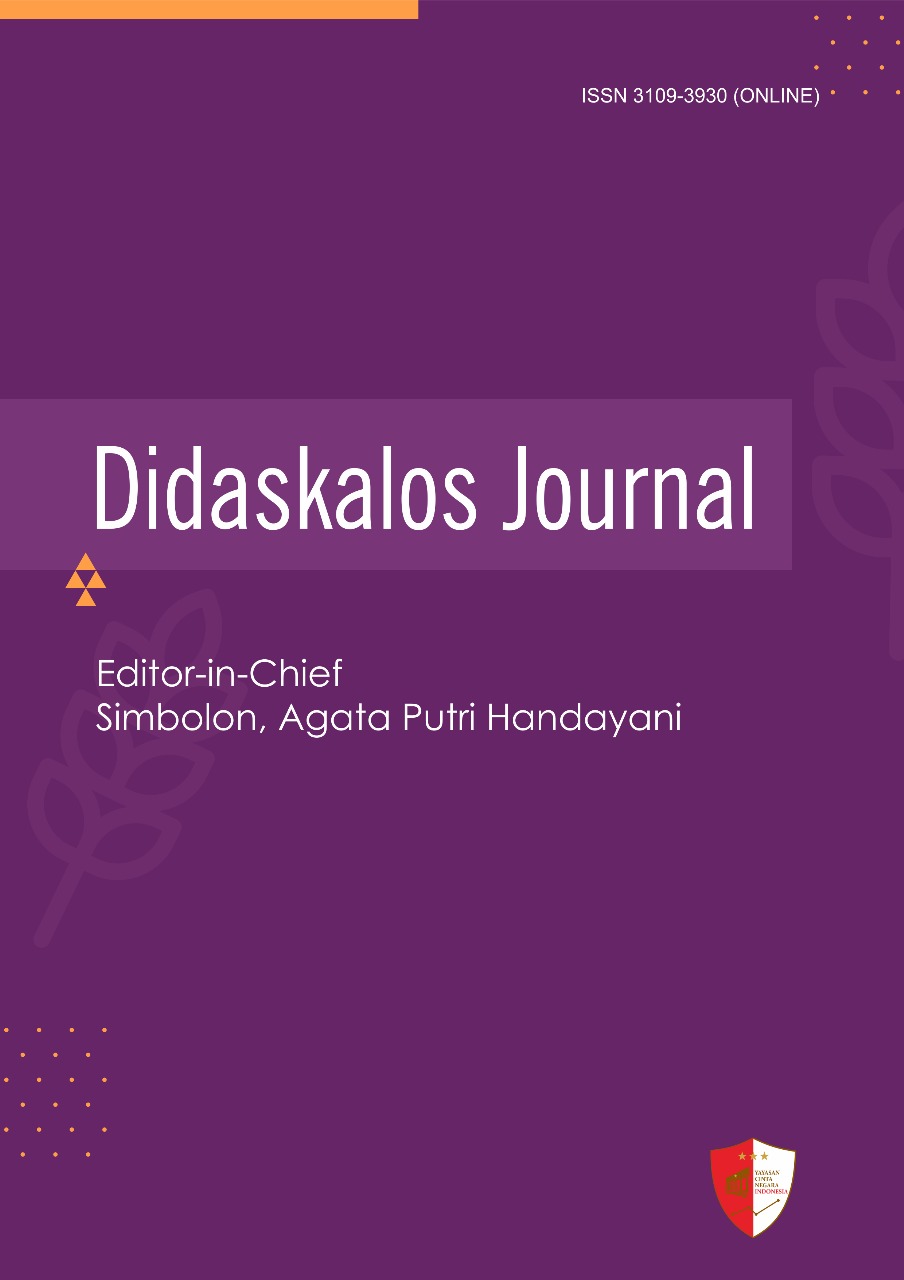Multicultural Learning Strategies in Enhancing Intercultural Tolerance in the School Environment
Keywords:
Cooperative Learning, Educational Environment, Inclusive Curriculum, Intercultural Tolerance, Multicultural EducationAbstract
The increasingly diverse composition of student populations in schools highlights the urgent need for effective multicultural learning strategies that promote intercultural tolerance. This study examines the implementation of multicultural learning approaches and their effectiveness in fostering students’ abilities to appreciate and respect cultural differences within the school environment. Through the application of qualitative and quantitative research methods, the study explores various pedagogical practices such as inclusive curriculum design, culturally responsive teaching, and cooperative learning that encourage open dialogue and mutual understanding among students from different cultural backgrounds. The findings reveal that multicultural learning strategies significantly contribute to reducing prejudice, enhancing empathy, and promoting harmonious relationships in the school setting. Moreover, teachers' active roles, school policies, and parental involvement are found to be essential in sustaining an inclusive educational environment. This study emphasizes the importance of integrating multicultural education as a core component of school curricula to cultivate intercultural competence and social harmony among students
References
Banks, J. A. (2006). Cultural Diversity and Education: Foundations, Curriculum, and Teaching (5th ed.). Pearson Education.
Bennett, C. I. (2003). Comprehensive Multicultural Education: Theory and Practice (5th ed.). Allyn & Bacon.
Berry, J. W. (2005). Acculturation: Living successfully in two cultures. International Journal of Intercultural Relations, 29(6), 697–712.
Brown, E. L. (2004). The Role of Multicultural Education in a Diverse Society. Multicultural Education, 11(4), 8–12.
Carter, R. T. (2000). Addressing Cultural Issues in Organizations: Beyond the Corporate Context. Sage.
Cushner, K., McClelland, A., & Safford, P. (2011). Human Diversity in Education: An Intercultural Approach. McGraw-Hill.
Darling-Hammond, L. (2010). The Flat World and Education: How America’s Commitment to Equity Will Determine Our Future. Teachers College Press.
Deardorff, D. K. (2009). The SAGE Handbook of Intercultural Competence. Sage.
Gay, G. (2000). Culturally Responsive Teaching: Theory, Research, and Practice. Teachers College Press.
Gay, G. (2018). Culturally Responsive Teaching: Theory, Research, and Practice (3rd ed.). Teachers College Press.
Gollnick, D. M., & Chinn, P. C. (2012). Multicultural Education in a Pluralistic Society (9th ed.). Pearson.
Grant, C. A., & Sleeter, C. E. (2011). Doing Multicultural Education for Achievement and Equity. Routledge.
Guo, S., & Guo, Y. (2011). Multicultural Education and Intercultural Competence: A Global Perspective. Journal of International Education Research, 7(1), 1–8.
Hammond, Z. (2015). Culturally Responsive Teaching and the Brain. Corwin Press.
Hofstede, G. (2001). Culture's Consequences: Comparing Values, Behaviors, Institutions, and Organizations Across Nations. Sage.
hooks, bell. (1994). Teaching to Transgress: Education as the Practice of Freedom. Routledge.
Jandt, F. E. (2017). An Introduction to Intercultural Communication: Identities in a Global Community (8th ed.). Sage.
Johnson, D. W., & Johnson, R. T. (2005). New Developments in Social Interdependence Theory. Genetic, Social, and General Psychology Monographs, 131(4), 285–358.
Johnson, D. W., Johnson, R. T., & Holubec, E. J. (2008). Cooperation in the Classroom. Interaction Book Company.
Ladson-Billings, G. (2009). The Dreamkeepers: Successful Teachers of African American Children (2nd ed.). Jossey-Bass.
Le Roux, J. (2002). Effective Educators are Culturally Competent Communicators. Intercultural Education, 13(1), 37–48.
Nieto, S. (2000). Affirming Diversity: The Sociopolitical Context of Multicultural Education (3rd ed.). Longman.
Nieto, S. (2009). Language, Culture, and Teaching: Critical Perspectives (2nd ed.). Routledge.
Noddings, N. (2005). The Challenge to Care in Schools: An Alternative Approach to Education (2nd ed.). Teachers College Press.
Ogbu, J. U. (1992). Understanding Cultural Diversity and Learning. Educational Researcher, 21(8), 5–14.
Pang, V. O. (2010). Multicultural Education: A Caring-Centered, Reflective Approach (2nd ed.). McGraw-Hill.
Parekh, B. (2006). Rethinking Multiculturalism: Cultural Diversity and Political Theory (2nd ed.). Palgrave Macmillan.
Portera, A. (2008). Intercultural Education in Europe: Epistemological and Semantic Aspects. Intercultural Education, 19(6), 481–491.
Sleeter, C. E., & Grant, C. A. (2007). Making Choices for Multicultural Education: Five Approaches to Race, Class, and Gender (5th ed.). Wiley.
Spencer-Oatey, H. (2012). What is Culture? A Compilation of Quotations. GlobalPAD Core Concepts.
Sue, D. W., & Sue, D. (2012). Counseling the Culturally Diverse: Theory and Practice (6th ed.). Wiley.
Vygotsky, L. S. (1978). Mind in Society: The Development of Higher Psychological Processes. Harvard University Press.
Walton, G. M., & Cohen, G. L. (2011). A Brief Social-Belonging Intervention Improves Academic and Health Outcomes of Minority Students. Science, 331(6023), 1447–1451.
Ward, C., Bochner, S., & Furnham, A. (2001). The Psychology of Culture Shock (2nd ed.). Routledge.
Zeichner, K. M., & Liston, D. P. (2013). Reflective Teaching: An Introduction (2nd ed.). Routledge.
Zhou, M., & Bankston, C. L. (2001). Growing Up American: How Vietnamese Children Adapt to Life in the United States. Russell Sage Foundation.
Downloads
Published
Issue
Section
License
Copyright (c) 2025 Roy Robbin, Chris Junia (Author)

This work is licensed under a Creative Commons Attribution-NonCommercial 4.0 International License.




